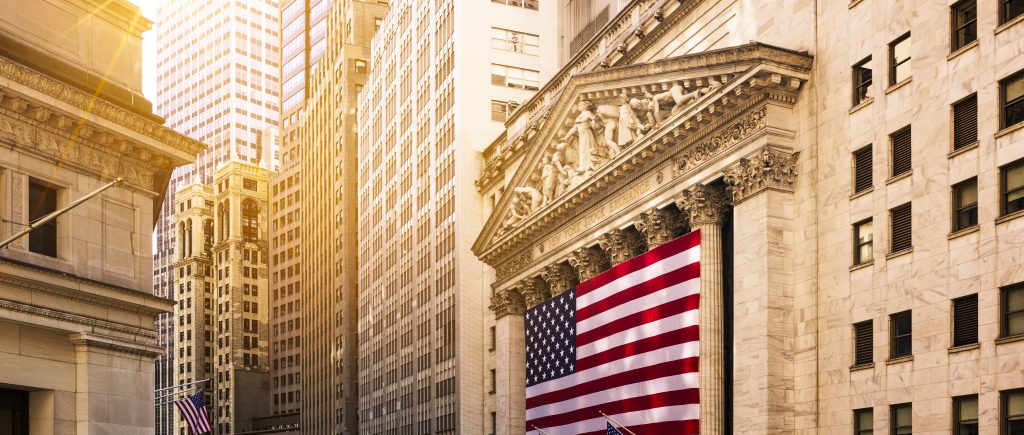U.S. stock index futures tumbled sharply on Monday, extending the recent market rout, as investors reacted to U.S. President Donald Trump’s renewed commitment to sweeping trade tariffs. The escalating trade tensions have fueled mounting concerns about a potential recession and triggered a broad wave of risk aversion.
As of 07:20 ET (11:20 GMT), Dow Jones Futures were down 675 points, or 1.8%, S&P 500 Futures slid 93 points, or 1.8%, and Nasdaq 100 Futures plunged 380 points, or 2.2%.
Investors are increasingly wary that Wall Street may be on the brink of its worst single-day drop since the infamous “Black Monday” crash of 1987, as global risk sentiment deteriorates rapidly.
Over just two sessions following Trump’s tariff announcement, the S&P 500 has dropped more than 10%, wiping out nearly $5 trillion in market value. This marks the index’s worst two-day loss since March 2020, at the onset of the COVID-19 pandemic, and positions it dangerously close to bear market territory.
Trump Tariffs Escalate Trade War
In remarks on Sunday, President Trump doubled down on his tariff strategy, calling it the “only way” to correct the U.S. trade deficit with China and the European Union. He made it clear that no negotiations with China would occur until the deficit is addressed, signaling a prolonged confrontation.
Last week, Trump imposed a 10% universal tariff on all imports, effective April 5, with higher, targeted tariffs on key trade partners—China, Vietnam, Japan, and the EU—set to take effect on April 9.
In retaliation, China imposed 34% tariffs on a broad range of American goods. The European Union is also reportedly working to finalize a coordinated countermeasure, further escalating the risk of a full-blown global trade war.
These developments are casting a long shadow over the global economy, threatening supply chains, trade flows, and overall economic stability.
Recession Fears Grow Sharper
In response to rising uncertainty, Goldman Sachs increased its probability of a 2025 recession to 45%, up from 35% the prior week. JPMorgan last week raised its forecast for a global recession this year to 60%, from 40% previously.
Markets are now pricing in five Federal Reserve interest rate cuts by 2025, as investors brace for a deeper economic shock. U.S. Treasury yields have tumbled in recent sessions, reflecting surging demand for safe-haven assets.
Volatility Surges: VIX Spikes to 8-Month High
Investor anxiety surged Monday as the CBOE Volatility Index (VIX)—Wall Street’s so-called “fear gauge”—jumped above 60 intraday, its highest level since August 2024. The VIX futures curve also inverted sharply, a sign of immediate market stress and demand for short-term protection.
The spread between front-month and eight-month contracts reached extremes not seen since the peak of the COVID-19 crisis in 2020, according to Bloomberg data.
Megacap Stocks Lead the Declines
Losses were widespread in premarket trading, led by megacap tech and consumer names:
- Apple (AAPL), Nvidia (NVDA), and Amazon (AMZN) all saw sharp declines.
- Tesla (TSLA) also dropped significantly.
- Caterpillar (CAT), which has broad international exposure, particularly in construction equipment sales, slumped as well.
The selloff reflects broad-based concerns over global demand, particularly if escalating tariffs begin to impact multinational revenue streams and investment sentiment.
With markets under heavy pressure and geopolitical tensions rising, investors are bracing for more turbulence in the days ahead.
 Noor Trends News, Technical Analysis, Educational Tools and Recommendations
Noor Trends News, Technical Analysis, Educational Tools and Recommendations





